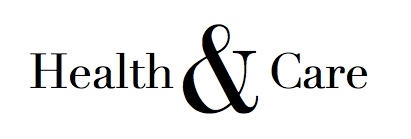
This post became a chapter in my 2013 book Let Patients Help: A Patient Engagement Handbook.
Every year in this season I reflect and renew, emerging in January with new views. This year the first conclusion arrived early: I’m changing a key part of my language. From now on for me it’s not “healthcare,” it’s “health and care.”
Why? Because I’m increasingly seeing that it’s incomplete to look at transforming medicine by just talking about the care part – the part that kicks in when something goes wrong. All of us – patients and providers and insurance and government and industry and everyone – need to be thinking about health, every time we approach a problem with the health care system.
I know I’m not the first to say this, but as a marketing slogans guy (“Let Patients Help,” “gimme my damn data” etc), I’m keenly aware of the power of handy language. Everything I explained above can be said over and over, but it doesn’t fit easily into everyday discourse. “Health and care” is an easy plug-in replacement for the usual “health care.” And that boosts the odds people will use the new wording.
And language defines our thinking.
The implications for patient engagement are clear: it’s not sufficient to get engaged (to get it in gear, to get activated) only when sickness hits. My view from now on is, if you wanna be an e-patient, it starts with holding up your end of the bargain before you get sick.
So for 2013, let’s broaden our scope: the focus of our work should be “health and care.”
__________________
One more thing: I like the word “care” – it’s patient-centered. In my life getting doctored and nursed, I’ve had the experience of being cared for, and I’ve had the experience of just being treated, without care. When I’m in trouble, what I want – what we should all shop and ask for – is great treatment delivered in a caring way.


Yes! My schooling on this came from Cynthia Baur, then at HHS and now at CDC, who gently pointed out the difference after reading Pew Internet’s first health-related report in 2000, “The Online Health Care Revolution.” I’ve tried, ever since, to say “health and health care” (even chanting it like a mantra whenever I forgot, at first).
Glad I said “I’m not the first.” :-)
But, if I may gently say it again: there’s a lot to be said for changes that fit well into existing phrases. I don’t know about you, but it’s harder for me to substitute “health and health care” than “health and care.” And to my slogan antennas, “health and care” gently emphasizes the “and.”
Language absolutely matters. Often is crystalizes, reveals or reframes a mental thought process or concept. Those uninterested in doing the deep investigative work around language frequently dismiss those of use who are by calling us “PC.” (Another revelation through language.)
I will have to let this new ampersand roll off my tongue a few times. Interesting. As a mom trying to raise e-patients (one son with special needs and one daughter without), I’ve been experimenting with applying the lessons learned from special needs self-advocacy to help my daughter’s build e-skill BEFORE she needs them. We’re having fun! (http://durgastoolbox.com/2012/06/29/transition-baby-steps-that-lead-to-major-milestones-it-starts-with-you/)
While we’re on the subject of the transformative power of language, I can share one of the biggest positive mental shifts I had: understanding the differences between “doing to,” “doing for” and “doing with.” Once I had words, my mind could see the experience so much more clearly, identify the strategies for moving forward, and advocate for a shift from one to the other. There was no going back.
Love finding you word geeks out there. Keep it up.
Always good to hear from you, Cristin.
In what context did your “doing to/for/with” arise? I’m having trouble imagining an example, so the “mind pop” isn’t happening.
I like it Dave, the emphasis on AND is critical, both for providers and consumers. In the rush for technology some have forgotten the need for the care component.
Plato said
However knows the Names knows the Things
(Ος αν τα ονόματα επίσταται, επίσταται και τα πράγματα)
In Greek language we use Hygieia (Υγεία) instead of Health, and it means to be well, and prevent illness.
Health comes from heal and has a different etymology and meaning.
Definitely Hygieia as a super status of the human being that comes before Health, that comes also before Care.
So from my perspective let talks about Super Status, Hygieia
… sorry the correct
Plato said
Whoever knows the Names knows the Things
(Ος αν τα ονόματα επίσταται, επίσταται και τα πράγματα)
In Greece we use Hygieia (Υγεία) instead of Health, and it means to be well, and prevent illness.
Health comes from heal and has a different etymology and meaning.
Definitely Hygieia as a super status of the human being that comes before Health, that comes also before Care.
So from my perspective let talk about Super Status, Hygieia
Thank you, George! It’s an honor to have another visitor from Greece. Did you come here because of Kathi Apostolidis?
(I knew what you meant, before the correction.)
Thank you.
Kathi inspires us to work in Health 2.0
You’re known in Greece